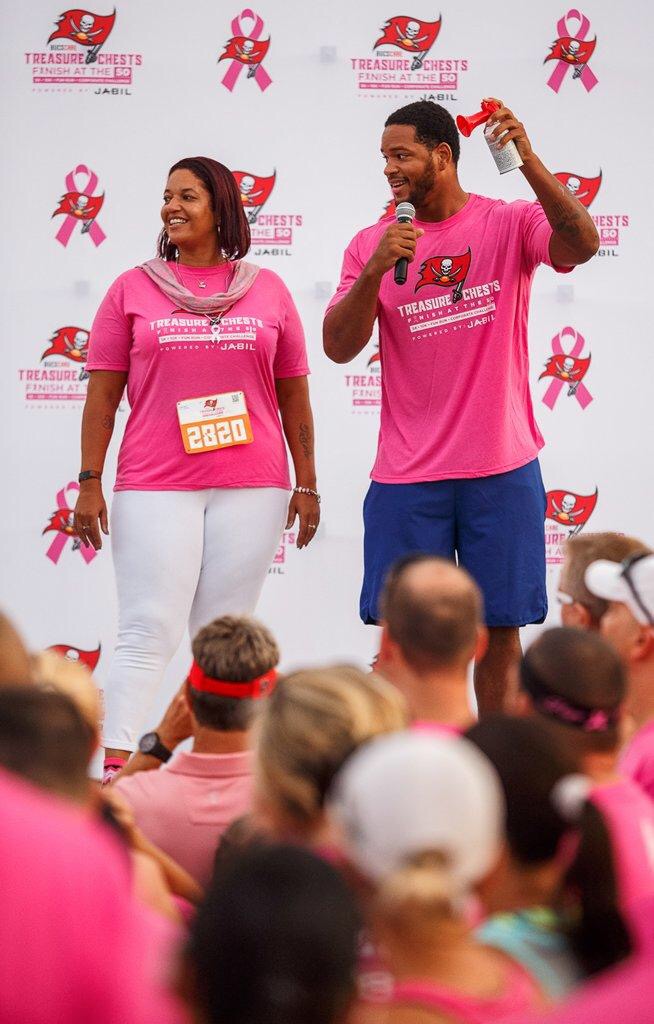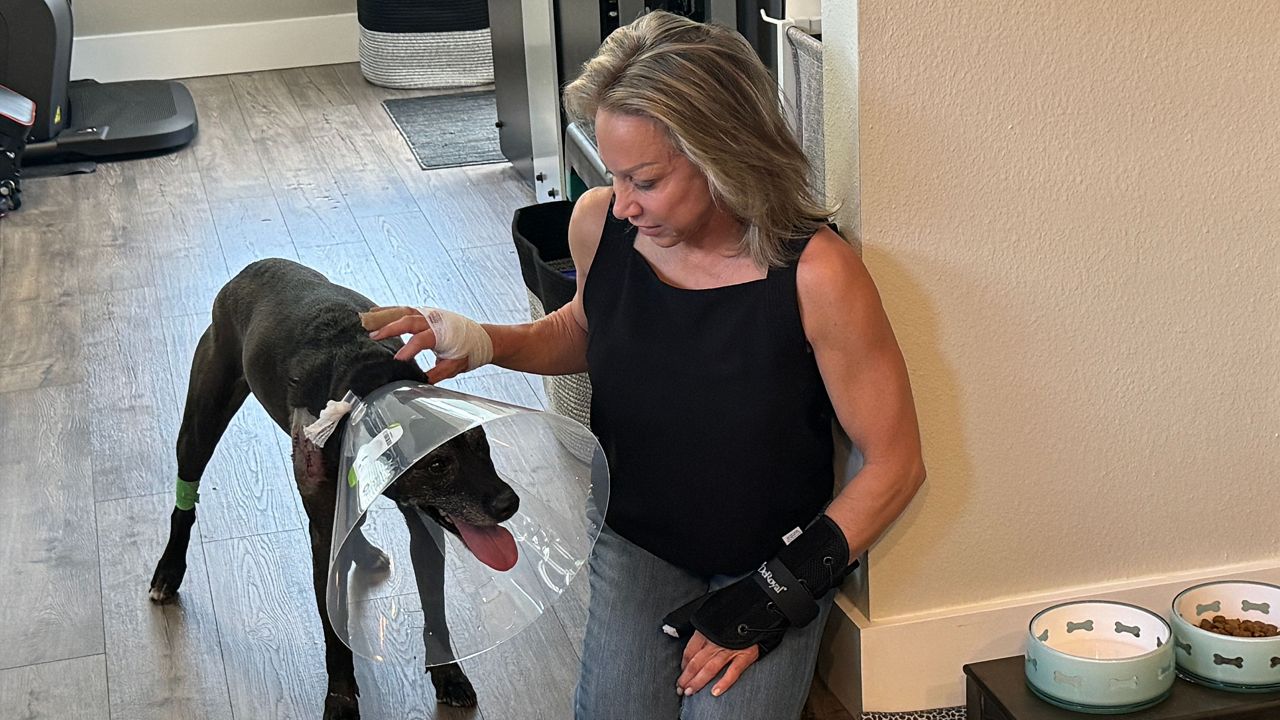When most people think about cancer research, football isn’t normally the first thing that comes to mind. But now the two worlds have collided and it’s going to lead to more cancer research in the Black community.
What You Need To Know
- Bucs' William Gholston donated $225,000 to Moffitt Cancer Center
- Data shows that Black men and Black women have the highest cancer death rates
- Moffitt Cancer Center will hold research event on February 11; link to register at bottom of story
- More Justice For All headlines
This week Moffitt Cancer Center announced a donation from Tampa Bay Buccaneers player, William Gholston in the amount of $225,000.
Gholston is heading to the Super Bowl this weekend with his Bucs family, but it’s his family at home that motivated him to make this large donation.
“My father passed away, my uncle passed away, my mom has fought breast cancer and I have another uncle who survived breast cancer,” Gholston said. “When I was in the process of fighting with my father it was a lot of lack of information and lack of knowledge and the why.”
Gholston’s mom, Dawn Ward, said she was surprised initially when she learned about the donation.
“I just knew that he was donating. I didn’t know it was gonna be in honor of me and his dad. And I was like 'aww' and it kind of made me cry,” she said.

Bucs player William Gholston and his mother, Dawn Ward (Photo courtesy of Dawn Ward)
Ward was working in the medical field in a cancer center when she was diagnosed with cancer. So she knows first hand how important her son’s donation is, especially for families like theirs.
“A large part I think with people of color not going in and being diagnosed properly is their access to it,” Ward said. “So hopefully with this donation it will help people that aren’t normally able to go and access the breast exams, the mammograms.”
Moffitt Cancer Center’s Vice President for Diversity, Public Relations and Strategic Communications, B. Lee Green said Gholston’s donation will go directly to George Edgecomb society.
“Those funds will be distributed to a cadre of researchers, right here at Moffitt who do health disparities research, each and every day so they’re doing research on prevention,” Green said. “They’re doing research on why we have these disparities. They’re doing research on innovations and interventions that we can use to prevent cancer from happening in this community at a different rate. “
According to data from the National Cancer Institute and Centers for Disease Control, Black men have the highest rate of new cancer diagnoses. That data also shows that Black men and Black women have the highest cancer death rates and the shortest cancer survival rate of any racial/ethnic group.

William Gholston and his Tampa Bay Buccaneers teammates will take on the Kansas City Chiefs in Super Bowl LV. (Photo from Tampa Bay Buccaneers)
The data also revealed that Black men are nearly twice as likely to develop prostate cancer. And Black men also have the highest death rate from prostate cancer of any racial or ethnic group.
Data shows breast cancer mortality is 41% higher among Black women compared to their white counterparts. Black women are also most likely to be diagnosed with breast cancer under the age of 50 and three times more likely to develop triple-negative breast cancer, which is a more aggressive form of the disease.
Cervical cancer diagnoses are 30% higher in Black women than white women; and Black women are 80% more likely to die from cervical cancer than any other racial or ethnic group according.
Researchers with George Mason University released a study where they found even more alarming information when it comes to race and cancer patients.
“At least 50 percent of the people, Black people, died a hundred days before 50 percent of the white people and that was like a 'woah.' So this disparity is serious. A hundred days is like three months,” said George Mason University Associate Professor Nirup Menon.
Their study that examined hospitals in Georgia also showed that Black patients wait longer for certain procedures.
“Actually Black patients experience longer time to surgery,” Menon said. “I don’t know if that’s because of customized plans. That is something we are going through to see why they would need more time to get there.”
Those are the kind of disparities Moffitt Cancer Center is hoping to reduce with their work and help from people like Gholston.
Moffitt Cancer Center is giving the community an update on the research they’ve done so far with cancer in the Black community. The event is Thursday, February 11 at 5:30 p.m. Here is a link to register.









